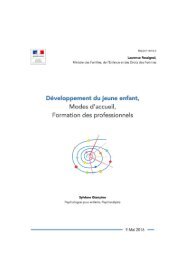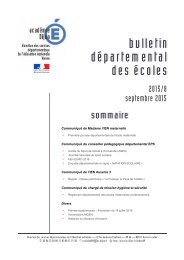agrl_innovations_in_ssa.pdf?utm_content=buffercb41d&utm_medium=social&utm_source=twitter
agrl_innovations_in_ssa.pdf?utm_content=buffercb41d&utm_medium=social&utm_source=twitter
agrl_innovations_in_ssa.pdf?utm_content=buffercb41d&utm_medium=social&utm_source=twitter
Create successful ePaper yourself
Turn your PDF publications into a flip-book with our unique Google optimized e-Paper software.
Malawi, Increas<strong>in</strong>g the availability of legume seed<br />
Gra<strong>in</strong> legumes are an important component<br />
of Malawi’s maize-based farm<strong>in</strong>g system and<br />
are a cheap source of vegetable prote<strong>in</strong> and<br />
vitam<strong>in</strong>s, <strong>in</strong> addition to their contribution of<br />
soil fertility improvement through nitrogen<br />
fixation. Despite these benefits gra<strong>in</strong> legume<br />
production is characterised by low yields<br />
with farmers experienc<strong>in</strong>g serious problems<br />
<strong>in</strong> access<strong>in</strong>g legume seed as seed companies<br />
have focused primarily on maize seed to the<br />
detriment of other crops.<br />
The Malawi Government’s programme of provid<strong>in</strong>g subsidised seed and fertiliser for<br />
smallholder famers <strong>in</strong>itially focused on maize but now <strong>in</strong>cludes legumes as it was<br />
recognised that their <strong>in</strong>clusion was desirable both from human nutritional and soil<br />
fertility perspectives. However, a serious shortage of seed was a major constra<strong>in</strong>t.<br />
A DFID-funded programme, Research-Into-Use (RIU)-Malawi was <strong>in</strong>strumental <strong>in</strong><br />
promot<strong>in</strong>g an <strong>in</strong>novation systems approach that facilitated the br<strong>in</strong>g<strong>in</strong>g together of<br />
legume seed stakeholders <strong>in</strong> an IP to identify bottlenecks and opportunities to <strong>in</strong>crease<br />
seed availability by help<strong>in</strong>g to broker l<strong>in</strong>kages for the participation of farmers <strong>in</strong><br />
multiply<strong>in</strong>g breeder and basic seed for certified seed production.<br />
Initial analysis <strong>in</strong>volved look<strong>in</strong>g at the whole seed value cha<strong>in</strong> from new variety<br />
approval and release, production of breeders’, foundation and certified seed to sale to<br />
farmers. The critical constra<strong>in</strong>t was identified as be<strong>in</strong>g the lack of sufficient breeders’<br />
seed. Although breeders were attempt<strong>in</strong>g to meet the demand, it was tak<strong>in</strong>g time and<br />
resources from ongo<strong>in</strong>g crop breed<strong>in</strong>g research. The proposed solution was for small<br />
quantities of pre-breeders seed to be released by the breeders to private sector growers<br />
with regular <strong>in</strong>spection by Department of Agricultural Research Services (DARS) Seed<br />
Services ensur<strong>in</strong>g seed quality was ma<strong>in</strong>ta<strong>in</strong>ed and certify<strong>in</strong>g the seed as required.<br />
RIU-Malawi provided a revolv<strong>in</strong>g <strong>in</strong>novation grant to <strong>in</strong>itiate activities, which allowed<br />
the IP to contract an approved private sector applicant to purchase pre-breeders seed<br />
to multiply and produce breeder’s seed. This was undertaken <strong>in</strong> close consultation with<br />
the breeder. This seed was then purchased by IP for onward sale to successful farmer<br />
applicants who were contracted to produce basic seed. The IP empowered members of<br />
an Association of Smallholder Farmers Seed Multiplication Action Group (ASSMAG) and<br />
Gra<strong>in</strong> Legumes Association (GALA) through tra<strong>in</strong><strong>in</strong>g to become effective partners. The IP<br />
organised and paid for tra<strong>in</strong><strong>in</strong>g of farmers by the DARS Seed Services unit.<br />
Key achievements <strong>in</strong>cluded a policy decision by the Government to allow farmers to<br />
participate <strong>in</strong> multiplication of legume breeder seed. As a result considerable quantities<br />
of breeders and foundation seed are now available for farmers to produce certified seed.<br />
Initial context. Gra<strong>in</strong> legumes are an important component of Malawi’s maize-based farm<strong>in</strong>g<br />
system and are a cheap source of vegetable prote<strong>in</strong> and vitam<strong>in</strong>s, <strong>in</strong> addition to their<br />
The case studies: Southern Africa 53






